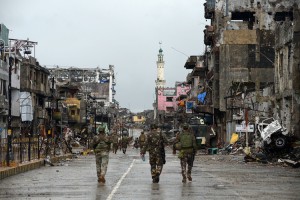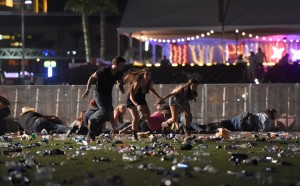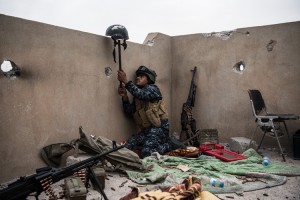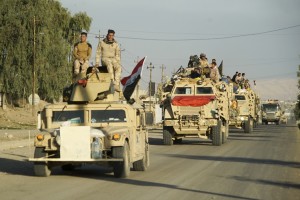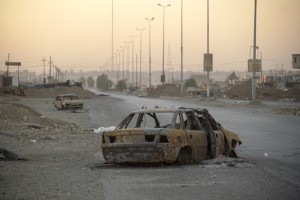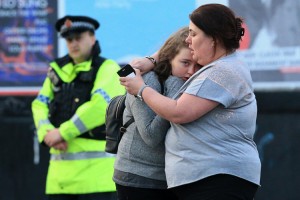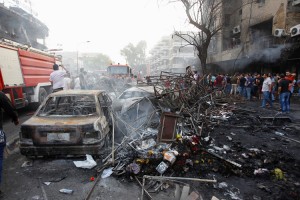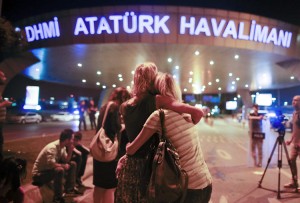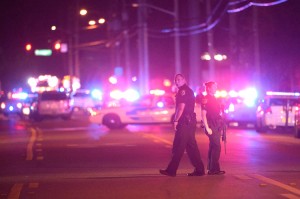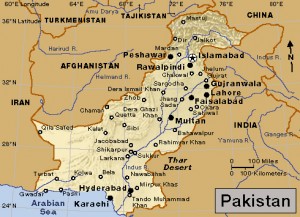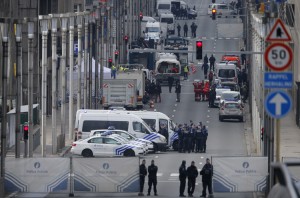Terror in New Zealand and Sri Lanka
Monday, May 13th, 2019May 13, 2019
The island nations of New Zealand and Sri Lanka are separated by nearly 7,000 miles (11,000 kilometers) of ocean. But in just over a month’s time, the distant neighbors were connected by ghastly mass killings. On March 15, 2019, a white supremacist gunman killed 51 Islamic people worshipping at a mosque in Christchurch, the largest city on New Zealand’s South Island. A few weeks later, on Easter Sunday, April 21, an Islamic terrorist group orchestrated coordinated attacks that killed 257 people, mostly Christians, in Colombo, Sri Lanka’s largest city, and other areas. The Islamic State terror group claimed to have organized these attacks with local Sri Lankan terrorists. They also claimed that the attacks were in retaliation for the mass shooting in New Zealand. Law enforcement agencies questioned the direct connection, however, as such a coordinated attack probably required more than a few weeks to plan.
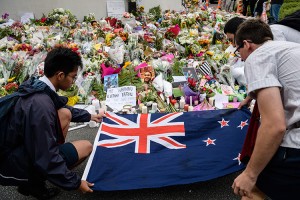
On March 18, 2019, students display the New Zealand flag during a vigil for the people killed in a mass shooting at the Al Noor mosque in Christchurch. Credit: © Anthony Wallace, AFP/Getty Images
New Zealand is not generally known for extremism or violence, but that changed—at least for one day—on the afternoon of March 15. A gunman, inspired by hateful and racist rhetoric (influential speech), entered the Al Noor mosque in Christchurch and began firing. Minutes later, he returned to his car, retrieved a second weapon, and re-entered the mosque to continue his rampage. The shooter then fled in his car, arriving a short time later at the Linwood Islamic Centre. Unable to find a door quickly, the attacker began shooting at the windows. A worshipper chased the gunman back to his car, and he again fled. Police then captured the shooter, a 28-year-old Australian man carrying various weapons and explosives.
The gunman planned his attack for wide exposure over social media. Shortly before starting his attack, the shooter posted a lengthy manifesto (a public declaration of his motives) on several websites. The gunman, who had decorated his weapons with white supremacist slogans, live-streamed the attack over the internet using a head-mounted camera. Both the manifesto and the video of the attack quickly circulated widely across the internet, particularly on such sites as Facebook, Twitter, and YouTube. The postings raised questions about whether or not such sites were doing enough to stop the spread of white supremacist material and other extreme content.
The government of New Zealand Prime Minister Jacinda Ardern worked quickly to draft a gun control bill. The bill overwhelmingly passed through Parliament and became law on April 12. In addition to banning the ownership of most automatic and semiautomatic weapons, the law established a buyback program under which owners of now-outlawed weapons could turn them in for fair compensation.
Ardern was widely hailed for the compassion and leadership she displayed in the aftermath of the attacks. She visited the survivors and publicly repudiated the gunman and his ideology. Ardern also vowed never to speak the gunman’s name in order to deny him the attention he sought.
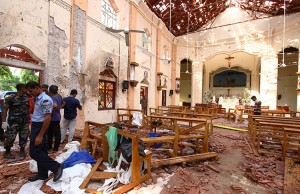
Sri Lankan officials inspect the ruins of St. Sebastian’s Church in Negombo, a Colombo suburb, in the days after terrorist bombs struck the church and other targets on April 21, 2019. Credit: © Stringer/Getty Images
In Sri Lanka, a civil war ended in 2009, and since then the country has experienced little violence. Religious extremism is not prevalent in Sri Lanka, where Christians and Muslims together account for less than 20 percent of the mostly Buddhist population.
On April 21, 2019, however, the National Thowheed Jamath (NTJ), a Sri Lankan Islamist group linked to the Islamic State, carried out coordinated attacks on Easter, the most important Christian festival of the year. The attacks occurred in the morning as people were attending church services or enjoying breakfast with family members. NTJ suicide bombers hit several targets within minutes of each other: Saint Sebastian’s Church in Negombo, a Colombo suburb; the Shrine of Saint Anthony in Colombo; the Zion Chuch in Batticaloa, a city on Sri Lanka’s east coast; and the Cinnamon Grand, Kingsbury, and Shangi-La hotels in Colombo. Later in the day, two more attacks occurred in the Colombo suburbs of Dehiwala-Mount Lavinia (at the Tropical Inn) and Dematagoda (at a housing complex).
Initial reports listed the dead at 359, but that number was later revised to 257. The discrepancy was caused by the difficulty in identifying body parts separated by the violent explosions. Another 496 people were injured in the attacks. Sri Lanka’s government declared a state of emergency as it began investigating the attacks. Police quickly identified a number of the attackers, and in the following days, they captured or killed a number of people suspected of aiding in the attacks. Numerous weapons and bomb-making materials were confiscated.
Sri Lanka’s government looked inward for blame, finding serious lapses in domestic and international security. Several government officials resigned, and the inspector general of police was placed on compulsory leave. Social media was blacked out for several days after the attack, some government offices and university campuses were closed, and previously slack restrictions on extreme Islamic rhetoric were greatly tightened. Religious services—both Christian and Muslim—were temporarily cancelled for fear of further attacks or reprisals, and the numbers of foreign tourists in Sri Lanka dropped sharply.

